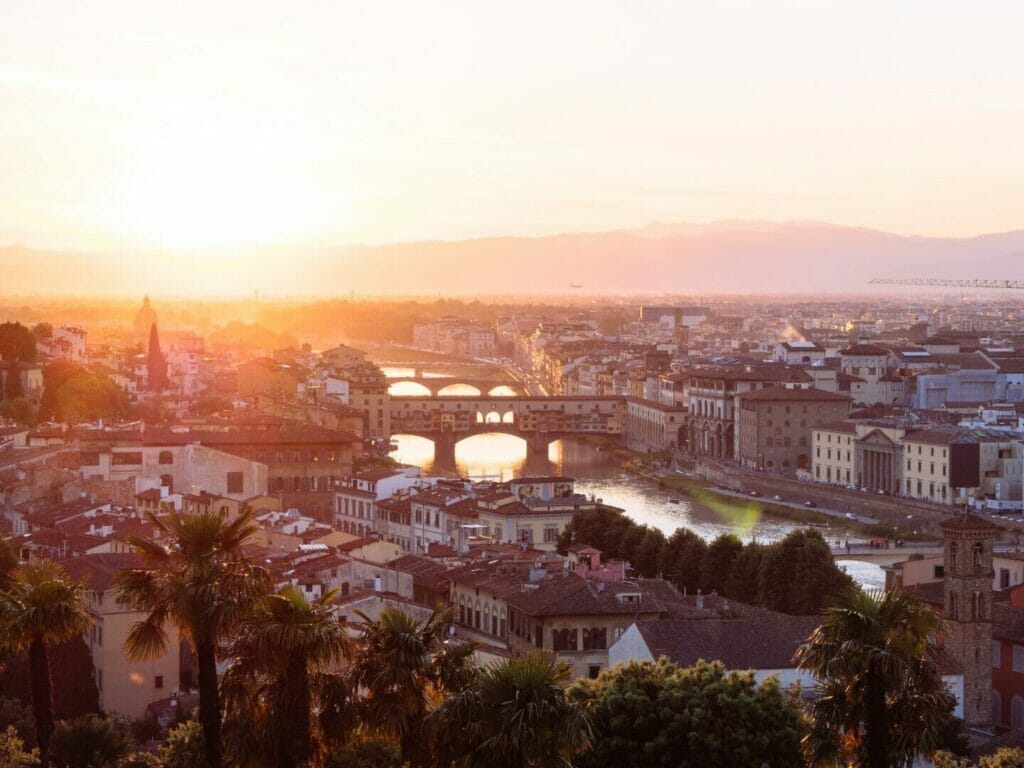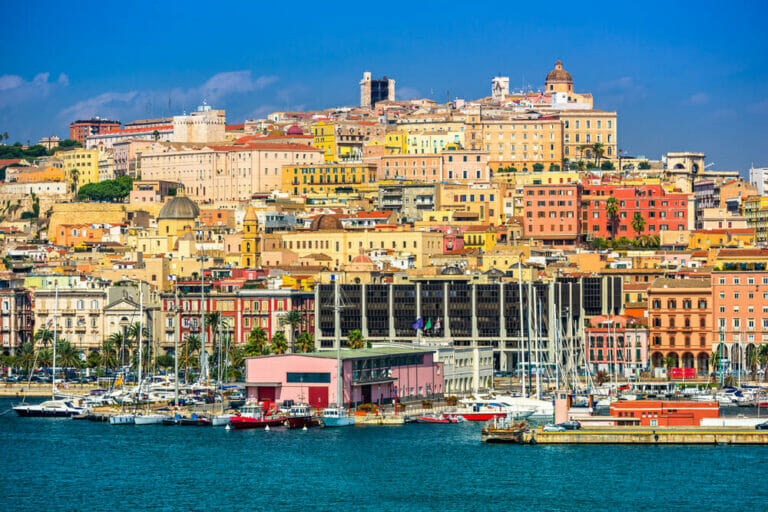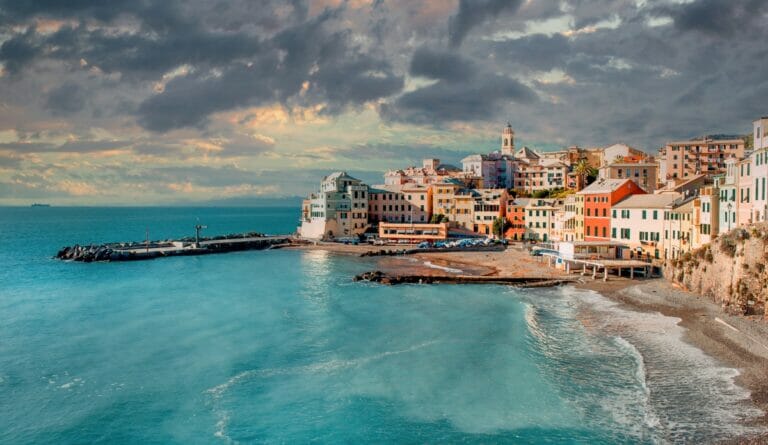What is the Drinking age in Italy?
If you are planning your trip to one of the wine regions is Italy and wondering about the legal drinking age in Italy then in this post, I am going to answer your question about What is the Drinking age in Italy.
I will also talk more about Chianti, a renowned wine region in Tuscany, Italy and its rich history and exceptional wines.
Chianti has become synonymous with the country’s drinking culture. The region’s winemaking traditions date back centuries, with vineyards producing some of the finest wines in the world.
In Italy, alcohol plays a central role in social gatherings and celebrations. Whether it’s a family dinner or a festive event, Italians often enjoy wine as an integral part of their meals and festivities.
Wine is seen as more than just a beverage; it is considered an essential element that enhances the dining experience and fosters conviviality among friends and family.
So let us know more about the legal drinking age in Italy.
Key Takeaways
- Chianti is a popular wine in Italy and is often enjoyed with meals.
- The legal drinking age in Italy is 18, but there are exceptions for younger individuals.
- Italy has a long history of drinking, with laws dating back to ancient Rome.
- Compared to other countries, Italy’s drinking age laws are relatively relaxed.
- Tourists should drink responsibly and be aware of cultural attitudes towards alcohol in Italy.

Legal Drinking Age in Italy: What You Need to Know
The legal drinking age in Italy is 18 years old for both beer and wine consumption. However, it is important to note that the legal age for purchasing spirits with higher alcohol content is 21 years old. This distinction reflects the cultural significance placed on different types of alcoholic beverages within Italian society.
When comparing drinking age laws across countries, there are notable differences. For instance, many European countries have set their legal drinking age at 18 years old or even lower in some cases.
In contrast, countries like the United States have set their minimum legal drinking age at 21 years old.
History of Italian Drinking Age Laws
Italian drinking age laws have evolved due to various factors such as societal changes and international influences. Historically speaking, Italy did not have specific legislation regarding the minimum drinking age until relatively recently.
In 2002, Italy introduced legislation setting the minimum legal drinking age at 16 years old for beer and wine consumption while maintaining 18 years old as the minimum age for purchasing spirits with higher alcohol content.
This change was influenced by European Union directives aimed at harmonizing drinking age laws across member states.
How Italian Drinking Age Laws Compare to Other Countries
| Italy | 18 | Loosely enforced | Small fines or community service |
| United States | 21 | Strictly enforced | Large fines, community service, or even jail time |
| Canada | 18 or 19 depending on province | Enforced to varying degrees | Fines or community service |
| France | 18 | Enforced to varying degrees | Fines or community service |
| Germany | 16 for beer and wine, 18 for spirits | Enforced to varying degrees | Fines or community service |
When comparing Italian drinking age laws to those in other European countries, it becomes evident that there is a wide range of approaches.
Some countries, like Germany and Austria, have set their legal drinking age at 16 years old for all types of alcoholic beverages. Others, such as the United Kingdom and France, have set the minimum legal drinking age at 18 years old.
Cultural and societal factors play a significant role in shaping these differences. In Italy, where wine is deeply ingrained in the cultural fabric, there is a more relaxed attitude towards alcohol consumption compared to countries with stricter regulations.
Exceptions to Italian Drinking Age Laws
While the legal drinking age in Italy is generally set at 18 years old for beer and wine consumption, there are exceptions to this rule. In certain circumstances, minors aged 16 or older can consume alcoholic beverages if accompanied by their parents or legal guardians during meals in restaurants or private homes.
This exception recognizes the cultural tradition of family gatherings where alcohol is consumed responsibly under parental supervision. It also acknowledges that responsible exposure to alcohol within a family setting can help educate young individuals about responsible drinking habits
Enforcement of Italian Drinking Age Laws
Italian authorities enforce drinking age laws through regular checks carried out by law enforcement agencies and local authorities.
Establishments serving alcohol are required to verify customers’ ages before serving them alcoholic beverages.
Penalties for violating Italian drinking age laws can vary depending on the severity of the offense and whether it involves minors consuming alcohol or establishments selling it illegally to underage individuals.
Violators may face fines ranging from €250 up to €3,000 or even temporary closure for businesses found repeatedly violating these regulations.
Cultural Attitudes Towards Drinking in Italy
Italian culture has long embraced moderate alcohol consumption as part of daily life without stigmatizing it excessively.
The country’s cultural attitudes towards drinking are rooted in the concept of “la dolce vita,” which emphasizes enjoying life’s pleasures in moderation.
Italians view alcohol as a complement to meals and social interactions, rather than a means to excessive intoxication.
This cultural perspective contributes to the more relaxed approach towards drinking age laws, as responsible consumption is seen as an integral part of Italian society.
Impact of Italian Drinking Age Laws on Tourism
Italian drinking age laws can have an impact on tourism, particularly for young travellers who may be accustomed to different regulations in their home countries.
Tourists under the legal drinking age may find it challenging to navigate these laws and fully participate in the country’s vibrant wine culture.
However, Italy’s rich history, breathtaking landscapes, and renowned cuisine continue to attract tourists from around the world.
By familiarizing themselves with local regulations and seeking out experiences that focus on cultural exploration rather than solely alcohol consumption, young travelers can still enjoy all that Italy has to offer.
Drinking Responsibly in Italy: Tips for Tourists
For tourists visiting Italy who wish to experience its drinking culture responsibly, there are several tips worth considering:
1. Familiarize yourself with local regulations: Understand the legal drinking age and any exceptions that may apply when accompanied by parents or legal guardians.
2. Pace yourself: Enjoy alcoholic beverages slowly and savour their flavours rather than consuming them quickly.
3. Stay hydrated: Drink water alongside alcoholic beverages to stay hydrated and minimize potential negative effects.
4. Eat while you drink: Follow the Italian tradition of enjoying wine with meals; this helps slow down alcohol absorption into your system.
5. Use public transportation or designated drivers: If you plan on consuming alcohol while exploring Italy’s cities or countryside, opt for public transportation or arrange for a designated driver instead of driving under the influence.
Future of Italian Drinking Age Laws
The future of Italian drinking age laws remains uncertain as societal attitudes and international influences continue to shape legislation. While there have been discussions about potentially raising the legal drinking age in Italy, no concrete changes have been implemented thus far.
Factors that may influence future changes include public health concerns, international pressure for harmonization of drinking age laws, and evolving cultural attitudes towards alcohol consumption. It is essential for policymakers to strike a balance between protecting public health and preserving Italy’s rich wine culture.
Navigating Italy’s Drinking Age Laws with Confidence
In conclusion, Chianti wine holds a significant place in Italian culture, reflecting the country’s deep-rooted appreciation for wine and its role in social gatherings. Understanding the legal drinking age in Italy is crucial for both locals and tourists alike.
Italian drinking age laws differ from those of other countries due to cultural factors that shape societal attitudes towards alcohol consumption. Exceptions exist within these laws to accommodate family traditions while still promoting responsible drinking habits.
By navigating Italian drinking age laws with confidence and embracing responsible consumption practices, tourists can fully immerse themselves in the country’s vibrant wine culture while respecting local regulations. Ultimately, it is through this balance that one can truly appreciate all that Italy has to offer – from its breathtaking landscapes to its world-renowned wines – without compromising personal safety or societal norms.
FAQs – What is the drinking age in Italy
What is the legal drinking age in Italy?
The legal drinking age in Italy is 18 years old.
Can minors drink alcohol in Italy?
Minors are not allowed to purchase or consume alcohol in Italy, even if accompanied by an adult.
Are there any exceptions to Italy’s drinking age laws?
There are no exceptions to Italy’s drinking age laws, except for minors who are allowed to consume alcohol for medical reasons with a doctor’s prescription.
What are the penalties for breaking Italy’s drinking age laws?
Penalties for breaking Italy’s drinking age laws can include fines, community service, and even imprisonment for repeat offenders.
What types of alcoholic beverages are popular in Italy?
Wine is the most popular alcoholic beverage in Italy, with Chianti being a well-known variety. Other popular drinks include beer, grappa, and limoncello.
Can tourists drink alcohol in Italy?
Tourists who are 18 years old or older are allowed to purchase and consume alcohol in Italy, as long as they follow the country’s drinking age laws.






